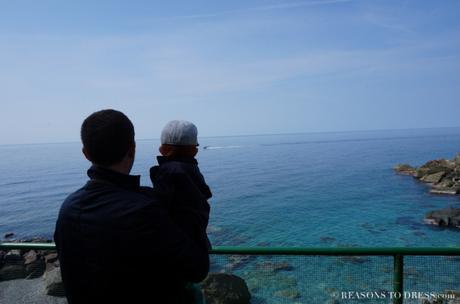
I often have to remind myself WHY I am at home with him. Aside from the desire to be a huge part of his infancy, my husband and I decided that one of the greatest gifts we could give him was bilingualism, and right now English in Italy is seen as a huge benefit.
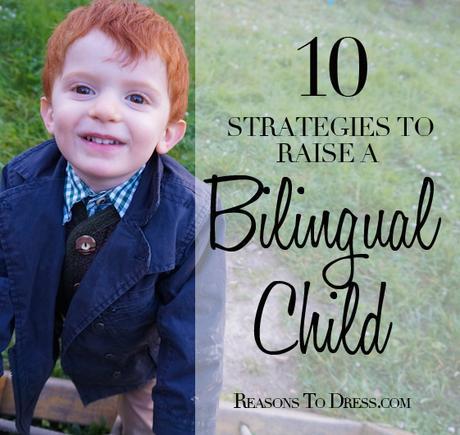
From the moment he was born I felt as though I had to make every moment with him "count" towards his learning and speaking English. You would think that English would be easy for him to pick up because his mom is English speaking, but think about it:
The t.v. is in Italian
His father is Italian
Our friends are Italian
Our playgroups, music classes and swim classes are all taught in Italian.
The WORLD outside is Italian.
So what are the odds that he will actually pick up MY LANGUAGE if I am the only one speaking it to him.
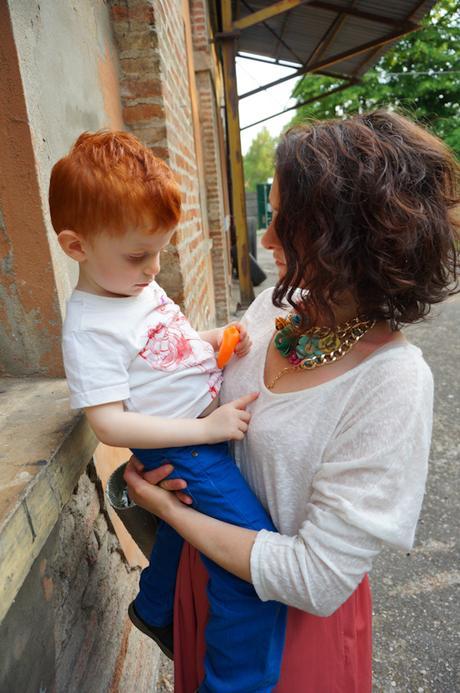
Well, they are actually pretty good, as long as I follow some ground rules and make his bilingualism a priority. I am happy to say that at 3 years old my son is fully bilingual, meaning he is able to understand and speak at equal levels in both Italian and English. I don't know if and how this will change as he gets older and attends Italian school, I can only continue to encourage his bilingualism and I wanted to share the strategies, suggestions and challenges I have faced to encourage other expats in similar situations who are also trying to raise bilingual kids.
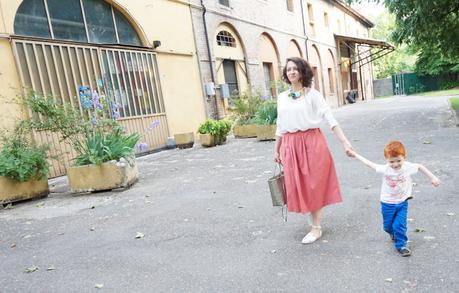
Bilingualism is not forever.
Despite what you may think, bilingualism can come and go! Just because a child is bilingual early on, doesn't mean they will maintain it throughout their childhood and into their adulthood. Like any "skill" or "ability" it has to be encouraged and exercised.
A few years ago I found the blog Bilingual Monkeys, written by an English dad raising his kids to be bilingual in Japan. The blog was filled with questions from parents who had always spoken to their children in their mother tongues, however, find themselves with kids who choose to respond in the country's main language. Why does this happen?
It is hard being different. And sometimes kids CHOOSE society's language over their mother tongue. You cannot get discouraged by this and should keep moving forward and encouraging bilingualism.
Before I begin I want to say that this is intended for parents who want to pass on a mother tongue to their children, and not necessarily for parents who would like their children to speak another language through schooling or private tutors. These are just suggestions and observations based on my own situation and life, I'm not an expert, but my son speaks both Italian and English equally and I want to share how I plan to keep this up!
N°1 - FILL IN THE BLANK - mixing is normal!
DO NOT GET DISCOURAGED if your young child begins mixing the two languages. This is perfectly normal and will happen less often as they age and grasp both vocabularies with more confidence. At two years old my son would often substitute Italian words he didn't know with the English words, however, now, at three years old he no longer does this! He will now simply ask "How do you say X?" or rather "Come si dice X?!"
If you notice your child mixing very often, try repeating what they just said while substituting in the correct word in your language. For example, if they say "Look mamma a fluffy " - you can repeat "Yes! Look a fluffy , let's go pet it!".
Personally, I would make a VERY CONCERTED EFFORT not to mix the two languages yourself. If you and your partner are proficient in both languages, set rules that you will not mix them. This is important because it teaches "code switching" - that you only speak in one language and then "switch" completely to the other, they are not interchangeable.
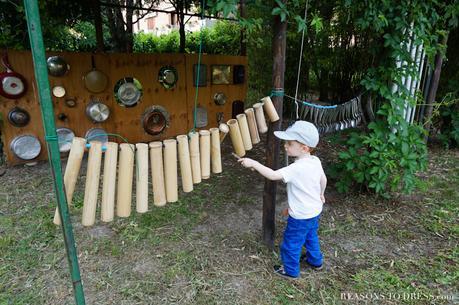
N°2 - HAVE NO FEAR - There will be nay sayers!
Oh HOW MANY TIMES I have had to defend my strategy for raising him in English and only speaking English with him! HOW MANY TIMES I've been asked by family, friends and acquaintances "Isn't he confused?", "Will he ever learn Italian?", "Won't he get behind?"
I can guarantee you that your child has the ability to learn two languages, or even ten! As long as they are all equally supported with consistent reinforcement, and as long as your child has a NEED to learn them! Do not get discouraged and know that the main country's language will be learned....whether you want it too or not in fact!
Children who have an extensive vocabulary in their mother tongue can easily acquire the main country language, and actually it will be easier for them to have a larger vocabulary because their brains are already programmed to assign multiple names to objects.
The bigger risk, is that your child may not learn their mother tongue, not that they will never learn the main country language, so stick it out despite what people may think.
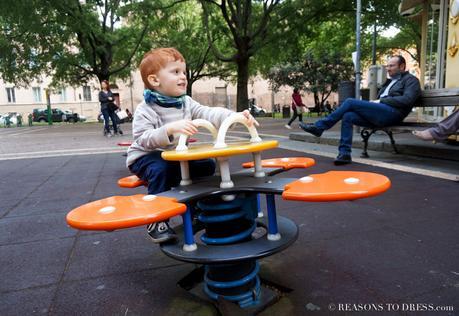
N°3 - DON'T BE RUDE - Why you should ALWAYS speak to your child in your mother tongue
I have many friends that feel embarrassed to speak to their children in their mother tongues when we are in a public settings together. They choose, to speak to their children in Italian when they are in a public space with other Italian adults and kids present. They worry about being "rude" if they say something to their child that the other kids or parents cannot understand.
Ask yourself - WHO AM I SPEAKING TO? If the answer is YOUR CHILD then speak in your mother tongue! Anyone who thinks you are being rude is not worth your time!
You will only confuse your child if you switch languages depending on the situation. AND you are setting a precedent that says "in public we don't need to speak our mother tongue". In the future when your child no longer responds to you in your mother tongue you will know why!
I think the only exception is if you have adopted the "in home = mother tongue" and "out of home = main country language" strategy. I prefer consistency, however, and would suggest that if you are having a conversation with your child that directly involves other people than TRANSLATE. Respond to your child in your mother tongue, and then repeat in the main country language what you said so the other people can be involved. Make active translation a part of your daily life.
N°4 - WHO SPEAKS WHAT?
If there is one thing I have learned it is that you must stick to a stable language plan. This can mean that BOTH parents always speak the mother tongue, or ONE PARENT ONE LANGUAGE.
At the beginning my son divided the whole world into WOMEN speak ENGLISH and MEN speak ITALIAN! Eventually this worked itself out and there is no need to fear, it shows that children have the ability to organize their world and process information.
If you are not consistently speaking your mother tongue to your child you are not giving them the chance to organize their environment.
It is also important to think about the NEED for language. If your child responds in the main country language and you carry on the conversation normally, this does not create a NEED for them to learn to speak the language. When my son speaks to me in Italian I just pretend I don't hear until he speaks to me in English!
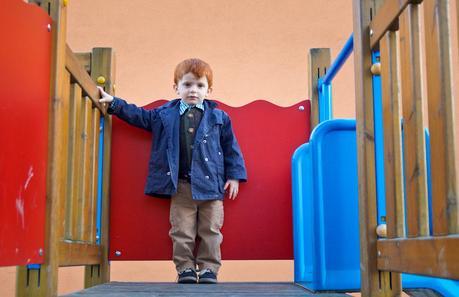
N°5 - A ROSE BY ANY OTHER NAME
My son does not know he speaks "English" and "Italian". He just speaks.
Don't get caught up in trying to make your child prove to other people how much of their mother tongue they know. Language is not a competition and language is not a game. There is no need to repeatedly ask a child "how do you say this in English?" etc.
I often have Italian friends come over and ask my child "Come si chiama in Inglese?", and he ALWAYS RESPONDS in ITALIAN because the person asking is Italian, even if he knows the word in English.
Putting your child "on the spot" publicly can make them feel embarrassed. Don't worry about proving to other people that they know both languages, just worry about having fun, conversing and playing with your child in a meaningful way in your mother tongue. The rest will all come naturally!
N°6 - The 30% rule
A good rule of thumb that I learned from the Bilingual Monkeys blog is the 30% rule. A bilingual child should actively hear their mother tongue for 30% of their waking time.
In my case that means 4 hours a day when my son sleeps a total of 10 hours. When he goes to pre-school for 7 hours a day, I will need to ensure that at least 4 hours of his day we are actively communicating in English. Meaning questions, discussions, songs, games and interactive multimedia. Which brings me to point number 7!
N°7 - MULTIMEDIA IS YOUR FRIEND!
I know that we all fear "screen time" but I think that in the case of bilingual families multimedia can play a very important role in the development of the mother tongue language. I try to "curate" a selection of children's shows on youtube along with English DVDs and interactive online games that are age appropriate and "language rich".
This is a great way to help your child foster a love for hearing their mother tongue and to create the NEED to interact with it. Multimedia games are excellent at encouraging your child to respond in their mother tongue and I would recommend that if you can WATCH/PLAY WITH YOUR CHILD it is a more meaningful experience.
While you watch tv, ask your child questions about what they see and elaborate on the story's plot to give them a lot of new vocabulary.
N°8 - INVEST IN BOOKS
I have a lot of friends who go to the Italian library and just translate the Italian books in an improvisational way into their mother tongues as they read. Although buying books can be expensive I HIGHLY RECOMMEND you invest in a family collection of children's books in your mother tongue.
Kids LOVE repetition and consistency, and they love to engage with books that they have memorized. If you are improvise each time you read, you are not allowing your child to memorize the text. Plus OWNING BOOKS means that your child will have favorites that they ask to read for years and years. These will also be the first books that your child learns to read on their own when the time comes!
Try asking your family to send you books in your mother tongue for holidays and birthdays, they will be great gifts that you and your child can treasure for years to come.
N°9 - READ, READ, READ.... and then READ SOME MORE!
20 minutes - 1 hour a day! We usually read in 3 x 15 minute sessions a day and I keep a big stack of books in the car for long drives.
Kids love stories, so why not have them fall in love with stories in their mother tongue. After you've invested in all those books, make an effort to keep them on rotation. Soon your child will choose their favorites and "read" them aloud, giving you the pleasure of hearing their vocabulary in the mother tongue expand with every book.
N°10 - CREATE COMMUNITY!
The biggest motivator in maintaining a language is the DESIRE TO COMMUNICATE. Children love to be loved. If you are like me, and your family is on the other side of the ocean you have to do a lot to "create a mother tongue community" for your child.
There are many different ways to do this, the first being:
Plan a Visit Home
In my case, flying to Canada is not only costly it is time consuming! So every year we either agree to meet somewhere in between (remember when I met my sister in Lisbon for a holiday),plan a visit home when you can afford it or have your family come to you!
Let's Chat
There are so many ways for us to have conversations in a cheap and economical way that there are no excuses for not calling! Between Skype, Facetime, Viber, Google Talk, Google Hangouts and Whatsapp we have plenty of choices to have daily chats with our loved ones!
Circle of Friends
I'm really lucky to have found a group of English speaking moms in Modena. We meet almost weekly so our kids can play and we can chat in English. If you do not know anyone in your area that speaks your language why not be the first to start a group!
I have also made an effort to maintain friendships from Canada. I had a great time meeting my Canadian friend Adrienne in Copenhagen and at least twice a year I see my Canadian friend Gillian who is also living in Rome, Italy. When you are an Expat you really have to make a big effort to expand your community. The goal is for your child to have meaningful relationships with people in their mother tongue.
I would love to hear your thoughts on raising a bilingual child if you are going through a similar situation. Right now, we are not planning on moving back to Canada so I'm trying to be as creative and resourceful as I can while in Italy. Please feel free to leave a comment with your suggestions and thoughts I'd love to hear from you.
Feel free to follow Reasons to Dress on Bloglovin' so you never miss a post!
You'll get one email a day with all the new posts from all of the blogs you follow.



